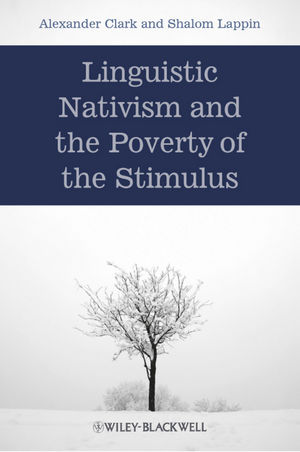
This unique contribution to the ongoing discussion of language acquisition considers the Argument from the Poverty of the Stimulus in language learning in the context of the wider debate over cognitive, computational, and linguistic issues. Critically examines the Argument from the Poverty of the Stimulus - the theory that the linguistic input which children receive is insufficient to explain the rich and rapid development of their knowledge of their first language(s) through general learning mechanisms Focuses on formal learnability properties of the class of natural languages, considered from the perspective of several learning theoretic models The only current book length study of arguments for the poverty of the stimulus which focuses on the computational learning theoretic aspects of the problem.